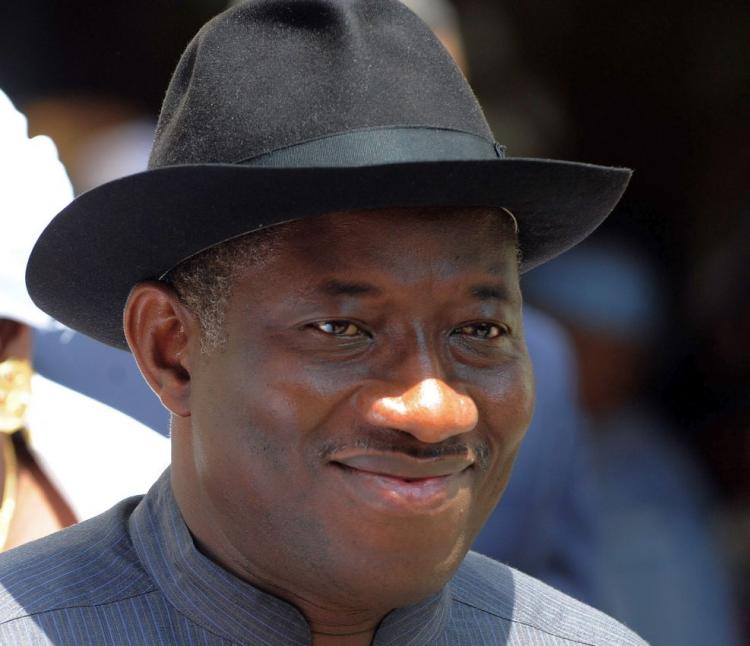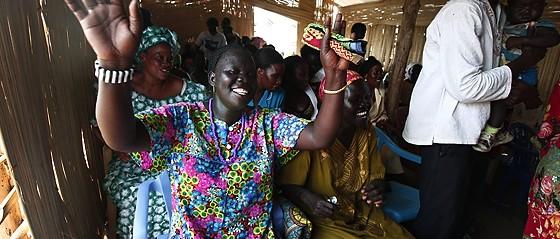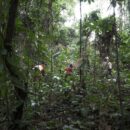Nigeria: After Baga, JTF lost in a maze of rocks and hard places – By Alkasim Abdulkadir


As Commander-In-Chief, Goodluck Jonathan must ensure Baga goes beyond just an investigation; any wrongdoing should be tried along the sterling traditions of the Nigerian army.
When Nigeria’s Joint Security Task Force (JTF) responded to the distress call that insurgents had stationed themselves in Baga, the quiet town on the edge of Lake Chad on Friday 19th April, they didn’t bargain for the use of Rocket Propelled Grenade (RPG) launchers by the insurgents. It’s also likely that the members of the Jama’a Ah Al Sunnah Li Da’wa Wa Al-Jihad – Boko Haram – also assumed that the area around the mosque wouldn’t be attacked by the JTF. As such, when the fight escalated, the insurgents merged with the residents in order to gain a foothold against the army. The options left for the JTF were either to beat a hasty retreat and fight another day or to stay and dislodge the insurgents from Baga. They took the latter decision. It is my assumption that the insurgents, understanding the army’s rules of engagement, knew that the JTF were caught between a rock and a hard place.
As the embers of the fires died and the dust settled, Governor Kashim Shettima (accompanied by soldiers and journalists) was able to visit the deserted town on Sunday, by then the residents had buried 185 bodies, while the Red Cross counted 187 – both the Army authorities and Presidency have disputed these figures.
While the army insists that it was the insurgents’ RPGs that caused the fires, the residents of Baga have thrown the blame right back at the soldiers, saying that they set the houses ablaze in a bid to chase the insurgents out of the area. This is not the first time that the JTF has been accused of setting buildings on fire in the fight against insurgents. On 9th of October 2012, an IED was thrown at a patrol van killing a Lt. Col and injuring two other soldiers. Afterwards the JTF was alleged to have gone on rampage at Gwange in Maiduguri killing 30 people – some of them died in their rooms – burnt 50 houses, a shopping complex and about 50 vehicles parked on the street. Another case also listed by Amnesty International against the JTF is the alleged killing of 25 people and the raping of women in Kaleri Ngomari Custain area of Maiduguri last year.
For those wondering where the insurgents’ arms come from, particularly the newly acquired RPGs, the Chad-Darfur-Sudan corridor is an arms dealer’s haven. In Bakara market in Mogadishu for $350 you can become a proud owner of an AK47, the dealer will even let you test your purchase by spraying a couple of rounds towards the Mogadishu skyline. The more ambitious customer can check out the anti-aircraft missiles and other lethal weapons of war.
Also, when the allies of Libya’s Moumar Ghaddafi fled the country, many weapons found their way across the Sahara into the hands of insurgents traversing countries like Algeria, Mali and Niger up to the peripheries of Nigeria. This has coupled with the identification of 1,487 illegal routes in to Nigeria by the Minister Of Interior, Abba Moro, and the almost 250 footpaths alluded to by Lt. Col Sagir Musa of the JTF which link Nigeria with Cameroon, Chad and Niger. In short, Nigeria’s borders are fluid and in some cases largely non-existent.
I find it strange that since the beginning of the insurgency in July 2009, and the subsequent war on terror in Nigeria, there has been no proactive action to increase the sharing of border intelligence between security agencies and a deployment of aerial and mobile surveillance systems of the Niger, Chad and Cameroon. Currently, these borderlands form the arterial connections in Boko Haram’s insurgency.
Like the army, Nigerian journalists have also come under stinging attack for their coverage of the Baga tragedy. For instance, NTA Network News at 9 – Nigeria’s flagship news program – tucked the report on Baga in the middle of its 45 minute bulletin, following its tradition of downplaying tragedies linked to ethno-religious conflicts. At the time of writing I am still looking for a media fixer (a journalist-guide) to escort my team from an international media organisation to Baga, our contact – an influential journalist based in Maiduguri – declined the task: “it is too risky, we only went because we had the governor’s (fortified) convoy”.
When one looks at the deficiencies of the average Nigerian journalist – operating without life or a medical insurance and a highly inadequate pay packet that oscillates between 60,000 – 80,000 Naira – it is evident that journalists reporting the insurgency are also being caught between a rock and a hard place. It brings to mind the courageous Enenche Akogwu – the Channels reporter – who was felled by bullets in the line of duty. The editor and reporter of Almizan also comes to mind in the reportage of alleged JTF high handedness, when in the last week of December 2012, 84 youths were arrested in a sweeping operation to curb the activities of the insurgents, the duo of Aliyu Saleh and Musa Mohammed were held in detention for their reports on the incident. Are we protecting journalists enough from the harassments of security agents?
As Commander-In-Chief, Goodluck Jonathan must ensure Baga goes beyond just an investigation; any wrongdoing should be tried along the sterling traditions of the Nigerian army. If the fight against the insurgents is to succeed, the people must not be alienated, such tragic incidents as witnessed in Baga will only further alienate the people from the statutory body set up to liberate them from the clutches of Boko Haram.
Alkasim Abdulkadir has worked as a Producer for BBC Media Action and has contributed pieces to CNN and Aljazeera, he is currently the Editor of Citizens Platform an online news platform. He is the 2012 recipient of The Future Awards Excellence in Service for Journalism.






Brilliantly said. Barely one week after Boko Haram receive $3.5 million dollars for French family release RPG’s show up in their combat with JTF. Bakara arms marketers may technically be some million dollars richer.